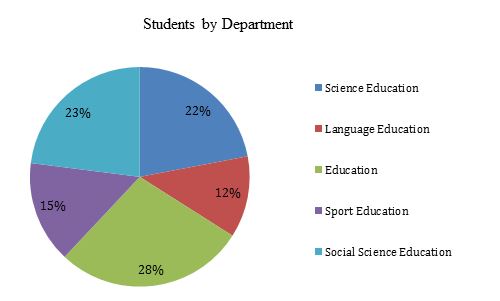
Learning Style and Learning Achievement of Students of FKIP Universitas Riau In Learning English
Abstract
Keywords
Full Text:
PDFReferences
Al-Saud LM. Learning style preferences of first-year dental students at King Saud University in Riyadh, Saudi Arabia: influence of gender and GPA. J Dent Educ 2013;77(10):1371-8. PMID: 24098042
Ang Siew Ling. 2017. Does Learning Style Impact Student Academic Performance? International Journal of Education, Learning and Training. Vol. 2 (No.2): 1 -13
Bada, E. & Zuhal Okan, B. (2000). Students’ Language Learning Preferences, The Electronic Journal for English as a Second Language. [online] Available : (http://www.teslej.org/wordpress/issues/volume4/ej15/ej15a1, accessed on Mei 18, 2019.
Dunn, R., & Dunn, K. (1986). The Dunn and Dunn learning style model of instruction. [Online] Available: http://www.unc.edu/depts/ncpts/publications/learnstyles.htm accessed on August 18, 2012.
Felder, R.M. & Spurlin, J. E. (2005). Application, reliability, and validity of the index of learning styles. International Journal of Engineering. Education. 21(1), 103-112.
Firmender, J. M., Gavin, M. K., & McCoach, D. B. (2014). Examining the Relationship Between Teachers’ Instructional Practices and Students' Mathematics Achievement. Journal of Advanced Academics, 25(3), 214–236. http://doi.org/10.1177/1932202X14538032
Hamilton, T., & Ekeke. (2013). Conceptual Framework of Teachers’ Competence in Relation to Students’ Academic Achievement. International Journal of Networks and Systems, 2(3), 6.
Hawk, T.F. & Amit J. Shah, A.J,. (2007). Using Learning Style Instruments to Enhance Student Learning. Decision Sciences Journal of Innovative Education. 5 (1):1-18.
Hilliard, D. 2001. Learning Style and Personality Types. http://www.wncc.edu/ studentservices/ counseling/styles_types/3_personality_types_and_learning.html. accessed on August 26, 2009.
James, S., D’Amore, A., & Thomas, T. (2011). Learning preferences of first year nursing and midwifery students: Utilising VARK. Nurse Education Today, 31, 417-423.
Keefe, J. W. (1987). Learning styles: Theory and practice. Reston, VA: National Association of Secondary School Principals.
Krejcie, R, V, & Morgan, D. W. (1970). Determining sample size for research activities. Educational and Psychological Measurement, 30, 607-610.
Leite, W., Svinicki, M., & Shi, Y. (2010). Attempted validation of the scores of the VARK: Learning styles inventory with multitrait–multimethod confirmatory factor analysis models. Educational and Psychological Measurement, 70(2), 323-339.
Mohamad Jafre Zainol Abidin,et.all, 2011. Learning Styles and Overall Academic Achievement in a Specific Educational System. International Journal of Humanities and Social Science. 1(10): 143-152.
Nemeth, J., & Long, J. G. (2012). Assessing Learning Outcomes in U.S. Planning Studio Courses. Journal of Planning Education and Research, 32(4), 476–490. http://doi.org /10.1177/0739456X12453740.
Peraturan Mentri Pendidikan dan Kebudayaan Republik Indonesia No. 23 tahun 2016 tentang Standar Penilaian Pendidikan.
Peraturan Rektor Universitas Riau No. 3 tahun 2015 tentang Peraturan Akademik Universitas Riau.
Sternberg, R. J. (1997). Thinking Styles. Cambridge, UK: Cambridge University Press.
Zapalska, A., & Dabb, H. (2002). Learning styles. Journal of Teaching in International Business, 13(3), 77-97.
DOI: http://dx.doi.org/10.31258/jes.3.3.p.340-352
Refbacks
- There are currently no refbacks.
Copyright (c) 2019 Hadriana Hadriana, Indra Primahardani, Mahdum Mahdum

This work is licensed under a Creative Commons Attribution 4.0 International License.
Publisher: FKIP Universitas Riau












